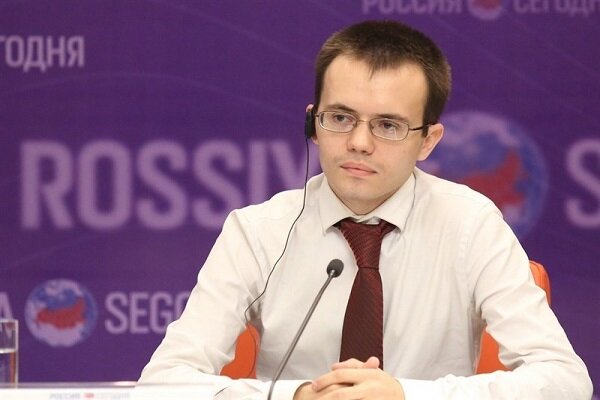Full membership in SCO will enhance Tehran’s soft security: analyst

TEHRAN - A geopolitical analyst says that Iran’s full membership at the Shanghai Cooperation Organization (SCO) will improve the Islamic Republic’s soft security in the region.
“The U.S. and the West always oppose the improvement of Iran's relations with others since that helps it better withstand their so-called ‘maximum pressure’ campaigns,” Andrew Korybko tells the Tehran Times.
“Iran's full membership in the SCO will enhance its soft security by enabling it to more effectively manage the chaotic situation in neighboring Afghanistan,” Korybko notes.
He also says Iran’s “socio-economic situation might also continue improving with time too as the SCO members pioneer new connectivity corridors through China's Belt & Road Initiative (BRI).”
After 15 years Iran became a full member of the SCO by eight permanent members of the group. It happened as the SCO leaders met in Dushanbe, Tajikistan, on September 16-17.
After the technical and legal process concludes – which could take up to two years – Iran will formally join that group that accounts for about one-third of the world’s land and exports trillions of dollars annually – as it counts China, Russia, India, and Pakistan, in addition to some Central Asian states, among its members.
“Those West Asian players that are opposed to Iran's historical regional role will realize that it's impossible to isolate it like they've been trying to do,” Korybko argues.
“The Islamic Republic is now officially part of the most effective security organization in Eurasia,” the geopolitical analyst adds.
Following is the text of the interview:
Q: How do you see the importance and position of the Shanghai Cooperation Organization? Is it an Asian NATO?
A: The SCO is the opposite of an Asian NATO. First, there's no mutual defense clause. Second, the organization is strictly defensive and not aimed against any other countries. And third, its members are united in their opposition to the shared unconventional threats of separatism, terrorism, and extremism while also jointly working together to advance their collective socio-economic development through trade and connectivity. It represents a new form of partner relations between states and is perfectly suited for the trends of the emerging Multipolar World Order.
Q: What are the implications of Iran's full membership in the Shanghai pact for the U.S. and West in large?
A: The U.S. and the West always oppose the improvement of Iran's relations with others since that helps it better withstand their so-called “maximum pressure” campaigns. Iran's full membership in the SCO will enhance its soft security by enabling it to more effectively manage the chaotic situation in neighboring Afghanistan. The country's socio-economic situation might also continue improving with time too as the SCO members pioneer new connectivity corridors through China's Belt & Road Initiative (BRI).
Q: What changes might be brought about by Iran's membership in the organization and how will this affect Iran's regional position?
A: Those West Asian players that are opposed to Iran's historical regional role will realize that it's impossible to isolate it like they've been trying to do. The Islamic Republic is now officially part of the most effective security organization in Eurasia. It's the first time that a West Asian nation has formally joined the SCO so Iran's experiences integrating into the group will set the standard that other countries from the region might follow if they too end up becoming full members sometime in the future.
Q: The U.S. and the UK are planning to send strategic and technical teams to Australia to help the country procure nuclear-powered submarines. How can the Shanghai Cooperation Organization help China to counter this move?
A: The SCO cannot do anything about the new AUKUS military alliance. It doesn't have the mandate, capabilities, nor intention. The SCO isn't a mutual defense pact, after all, so none of its members are obligated to help one another, let alone when it comes to countering conventional threats like that one. China will do what's needed within responsible and legal means to safeguard its national security interests. It's also strong enough that it doesn't need the SCO members' support when responding to this.
Q: What will be Afghanistan's position in the SCO now that the Taliban have taken power in Afghanistan?
A: Afghanistan remains an observer and is unlikely to attain full membership any time in the coming future since its de facto Taliban-led government isn't internationally recognized. Most countries such as Russia continue to designate it as a terrorist group although the Kremlin still pragmatically engages with them in the interests of peace and security. The SCO countries must come together to stave off Afghanistan's impending humanitarian crisis which could produce a regional refugee one and also create fertile ground for ISIS-K to expand.
Afghanistan remains an observer and is unlikely to attain full membership anytime in the coming future since its de facto Taliban-led government isn't internationally recognized. Most countries such as Russia continue to designate it as a terrorist group although the Kremlin still pragmatically engages with them in the interests of peace and security. The SCO countries must come together to stave off Afghanistan's impending humanitarian crisis which could produce a regional refugee one and also create fertile ground for ISIS-K to expand.
Leave a Comment